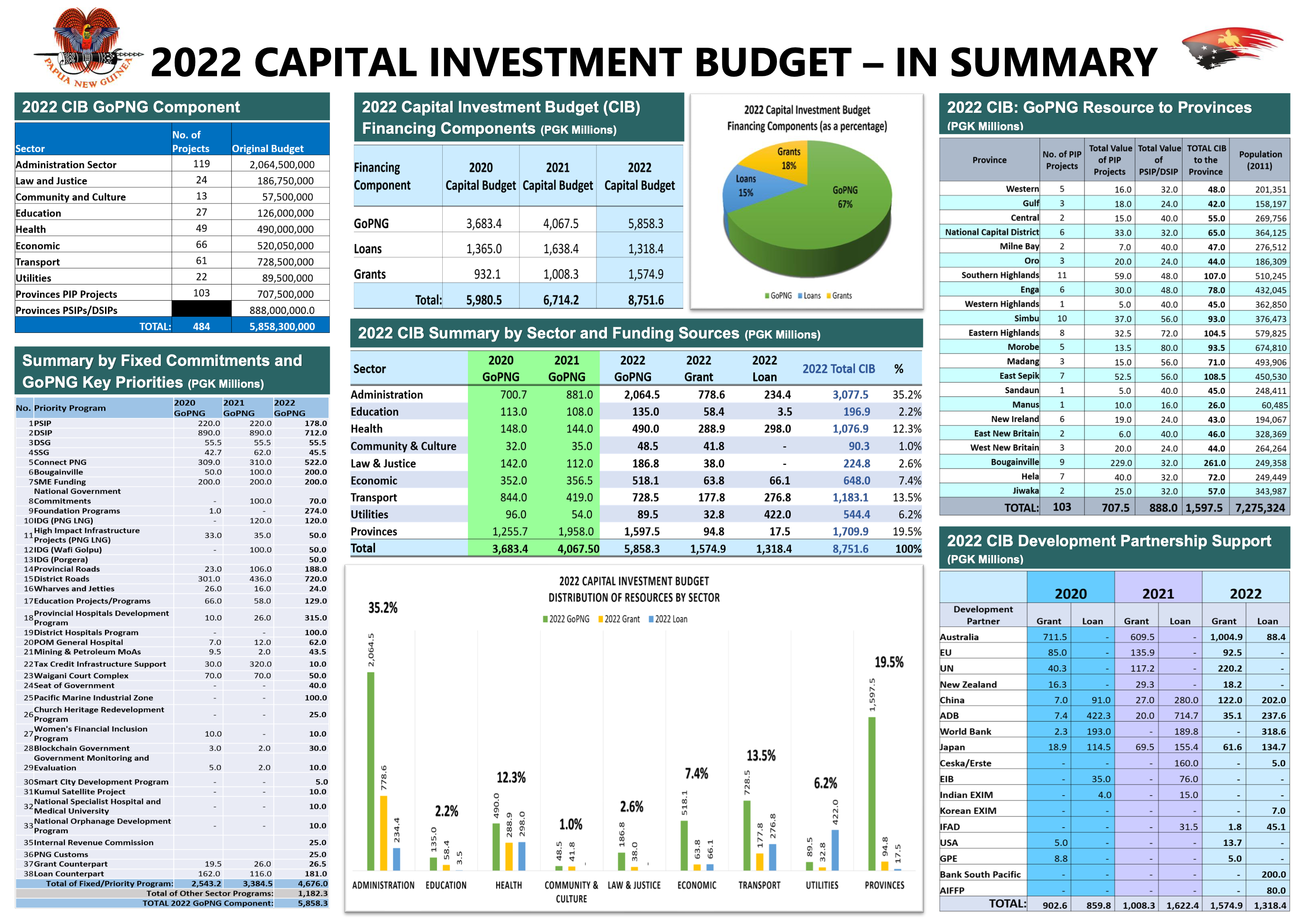FAQ's
What is the role of the Department of National Planning and Monitoring (DNPM)?
The role of DNPM is to lead, plan, coordinate and facilitate appropriate national and international initiatives that addresses and promotes equitable and sustainable development of Papua New Guinea, in accordance with both a long-term vision for the Nation that has the support of the citizens of Papua New Guinea and the five (5) directive principles of the National Constitution.
The Department of National Planning and Monitoring acts as the key central agency advising Government on matters relating to strategic development; development policy; development planning and programming; foreign aid coordination and management; and monitoring and evaluation of national development projects and programmes.
What are its legal mandates?
The Department of National Planning and Monitoring is a Public Service Agency that carries its role under the constitution for social and economic planning, as espoused in the Prime Minister and National Executive Council Act, under the powers and functions of the Prime Minister as provided for under the constitution. And conducts its roles and functions in social and economic planning through a process of development planning and setting strategies utilizing other instruments of the state as provided for in the National Statistical Act, the Fiscal Responsibilities Act, the Loans and Revenue Act, the National Fiscal Economic Commission Act, and the Public Finance Management Act.
In addition, the Agency conducts its business taking policy reference from other enabling legislations in the National Education Act, National Health Act, Defense Act, and the Organic Law on Provincial and Local Level Governments, the Justice and Attorney General's Act, Lands and Physical Planning Act, and National Transport Legislations. It also conducts its process in development planning and development strategy, taking references from a number of development charters and treaties under the UN, the principals ones being the MDGs, the Vienna Convention, which stipulates diplomatic relations, and the ordinances governing the International Monetary Fund, and the International Bank for Reconstruction and Development (also commonly referred to as the World Bank).
In achieving National Equity (achieving national development outcomes) as provided in the Constitution, where the agency has to conduct its process taking due institutional reference of the Organic Law on Provincial and Local Level Government Affairs, because it stipulates a planning system and process (commonly referred to as bottom-up planning) where planning has to be based on the lowest level of Government (achieving the key principles of government for and by the people), where planning is provided for through ward planning committees and LLGs and district plans, and provincial plans.
How does the department contribute to the country's development goals?
The Department of National Planning and Monitoring contributes to the country's development goals by conducting proper planning based on strong policy analysis using the best empirical and objective assessments and being a strong advocator of planning and development policy; and conducting itself in a way that translates a Government's political manifesto into strategic policy formulation, strategic planning, and a development financing plan through the Public Investment Program (commonly now established as the Development Budget) towards achieving social and economic development.


